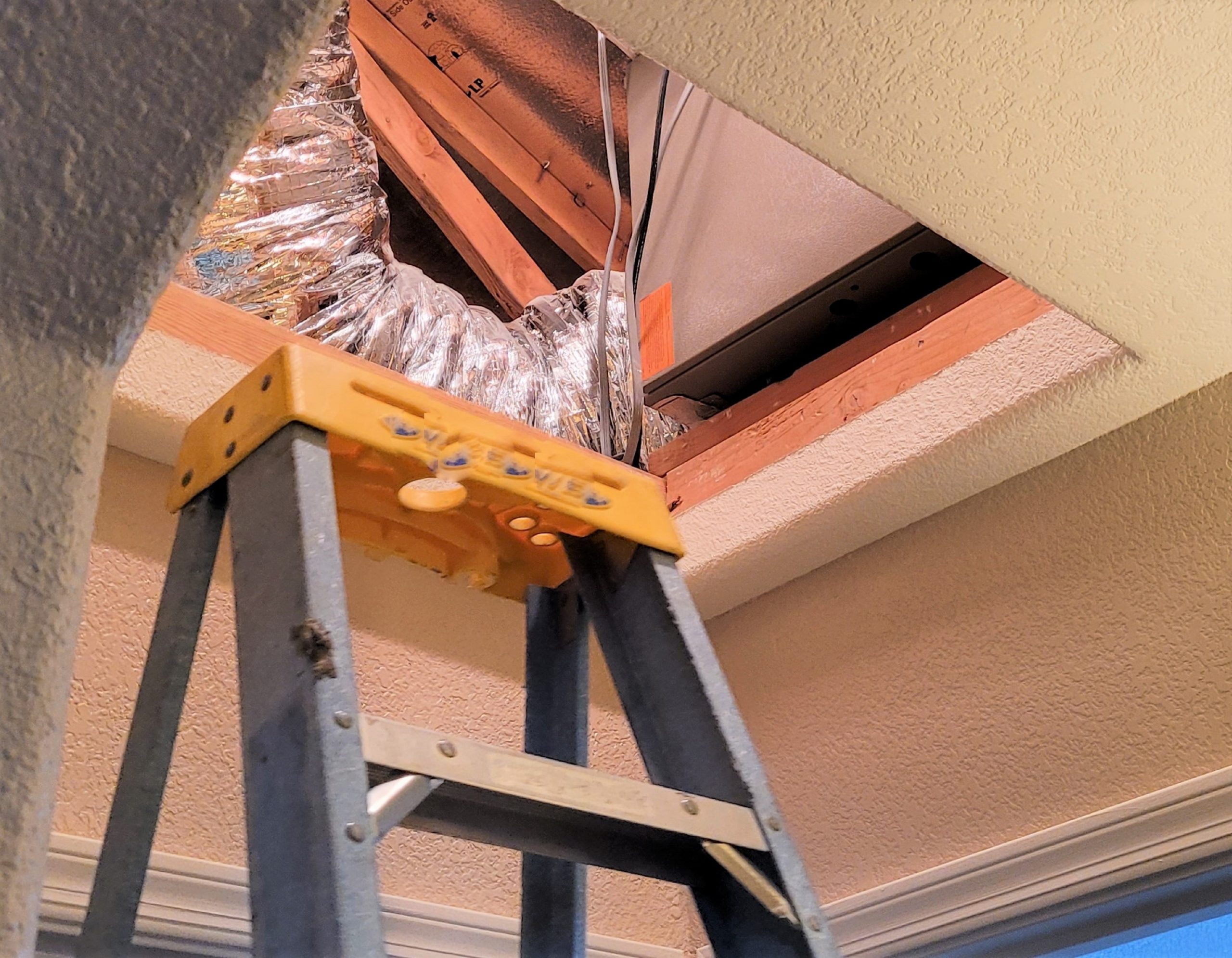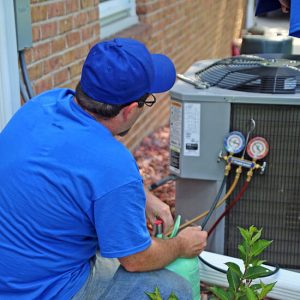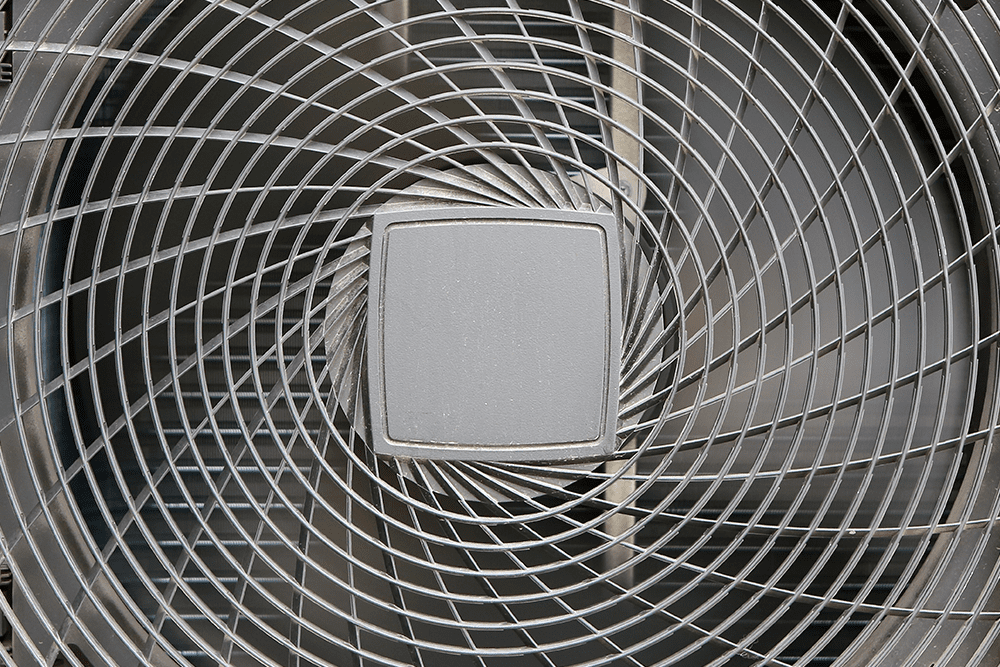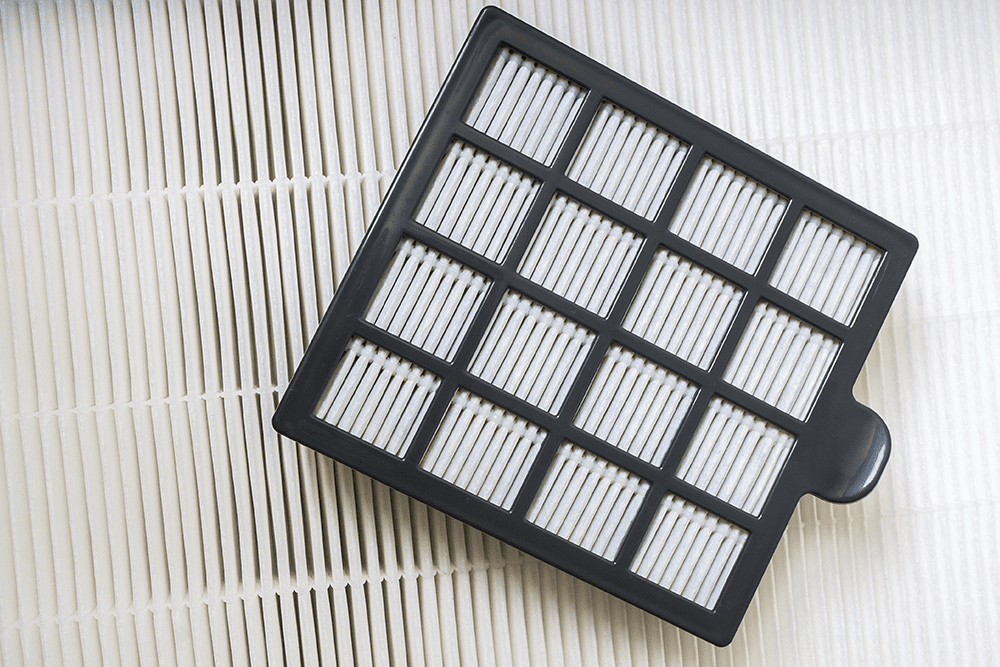
Have you considered the pros and cons of replacing instead of repairing your air conditioner and now you are just wondering what kind of prices you may be looking at? We will be breaking down the factors that affect the cost of an AC to help you make the right choice.
Cost of AC Replacement – Overall Cost
The cost for a new replacement unit can cost anywhere between $4,000-$12,000 or more. This includes the labor and permit fees. The range given also covers a variety of sizes and levels of sophistication, even including variable-speed AC systems.
Factors that Can Affect the Price
- Capacity/Power of the system
- Efficiency
- The HVAC equipment you’re not replacing
- Modifications to your existing system
- Line set protection
- Installation costs
- Tax credits and rebates
We’ll be going into further details below, including more precise price ranges for entry-level, mid-level, and high-end AC systems.
Common AC Parts + Accessories
Most people don’t think of the intricate little components that go into making your AC system hall, just thinking about the unit itself. So here are some other components that have a hand in the final price.
- Physical parts, including indoor evaporator coil, outdoor pad, outside electric disconnect, an electric conduit from the disconnect to the AC, a new copper line set from the indoor coil to AC, and PVC pipe to use as a drain line.
- Local permits
- Electrical costs involving breakers and thermostats
- Ductwork modification–if needed
- Condensate drainage
Cost of AC Replacement – Air Conditioner Size
 The size of a unit can affect the cost, and its ability to meet your cooling needs. The size of a system is describing the output it needs to cool your home properly. To get the correct sizing one of our experts needs to complete a load calculation so that they can recommend the best size for your home.
The size of a unit can affect the cost, and its ability to meet your cooling needs. The size of a system is describing the output it needs to cool your home properly. To get the correct sizing one of our experts needs to complete a load calculation so that they can recommend the best size for your home.
Like with most things, size isn’t everything and bigger isn’t always better. If it’s too large the system will cycle on and off too often, not properly doing its job. One size does not fit all.
Matching Existing Equipment
When changing your air conditioning system, you probably aren’t thinking about matching your furnace, but when replacing your AC system, you will likely want to match it to your current heating systems. Variable-speed AC units especially need to be compatible with your existing furnace system.
Ductwork Modifications
Speaking of matching equipment–that nice new system may also require ductwork modifications if your previous ducting isn’t the right size – or was improperly installed before. It can cause improper cooling in your home.
Your home may also need ductwork simply because different units have different needs. To assure that your ducting is correct, have one of our pros conduct a thorough duct analysis on your ducting. Spending more now, can mean saving more later.
In Conclusion
Air conditioners can sometimes cost more than what you were expecting initially, but with our expert help, we will find the perfect solution for your family and your home.
Entry-Level ACs offer a reliable cooling solution if you are on a budget and aren’t looking to stay long.
Mid-range ACs usually have increased efficiency and are great if you are planning on staying in your home long-term.
High-end ACs provide the most control over a system and are great if you want to address multiple problem areas in your home.
These costs vary year to year–but here we will help you pick the best solution within your budget. Your trust is our business, so providing the knowledge you need to help make the right choice is essential. Let one of our experts help you whenever you are ready.
continue reading
Related Posts
For homeowners and business owners in Auburndale, FL, having an […]
Geothermal HVAC Heating and Cooling: The Future of Energy Efficiency […]
Indoor Comfort Takes a Quantum Leap: Exploring Innovative HVAC Smart […]



